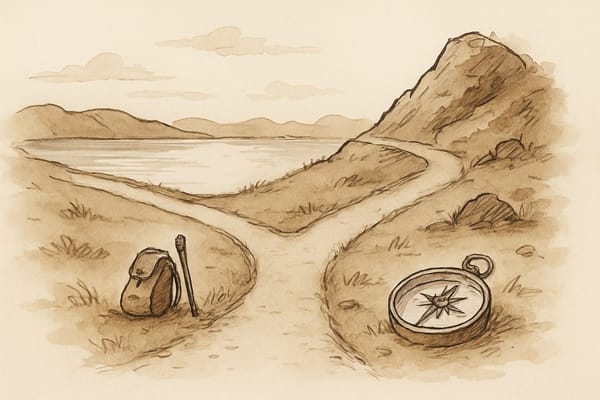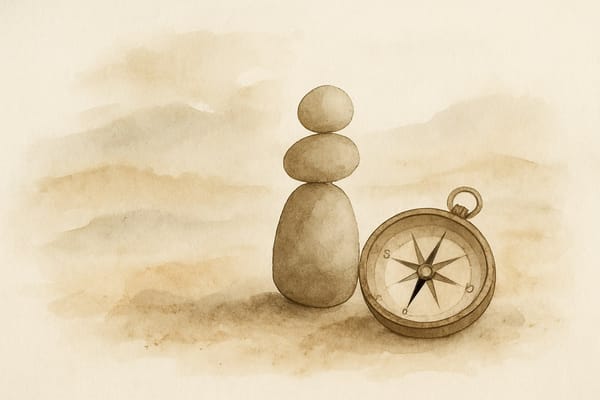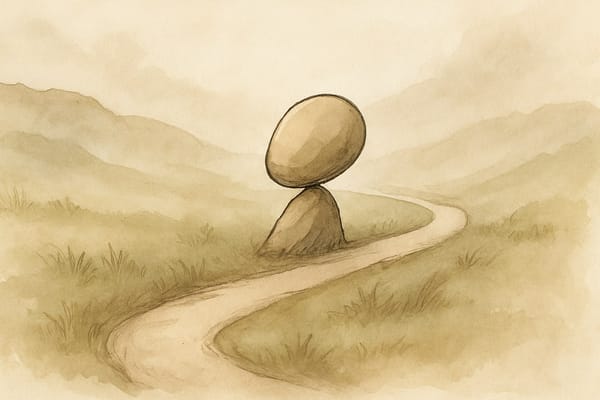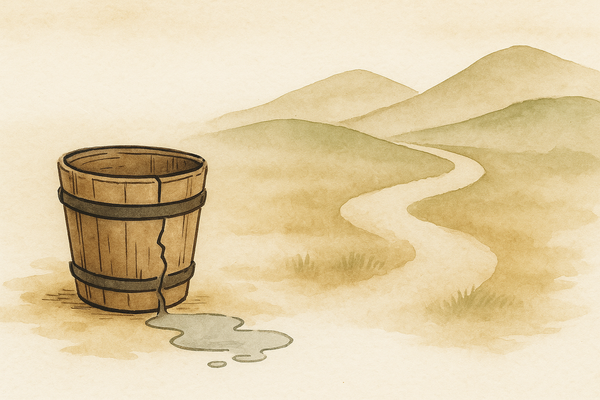W4. Apatheia
What if the real struggle isn’t between virtue and tranquility, but in staying reasonable when emotions take over? This post explores the role of apatheia, emotional regulation, and a strange yet effective technique called Amygdala Clicking.
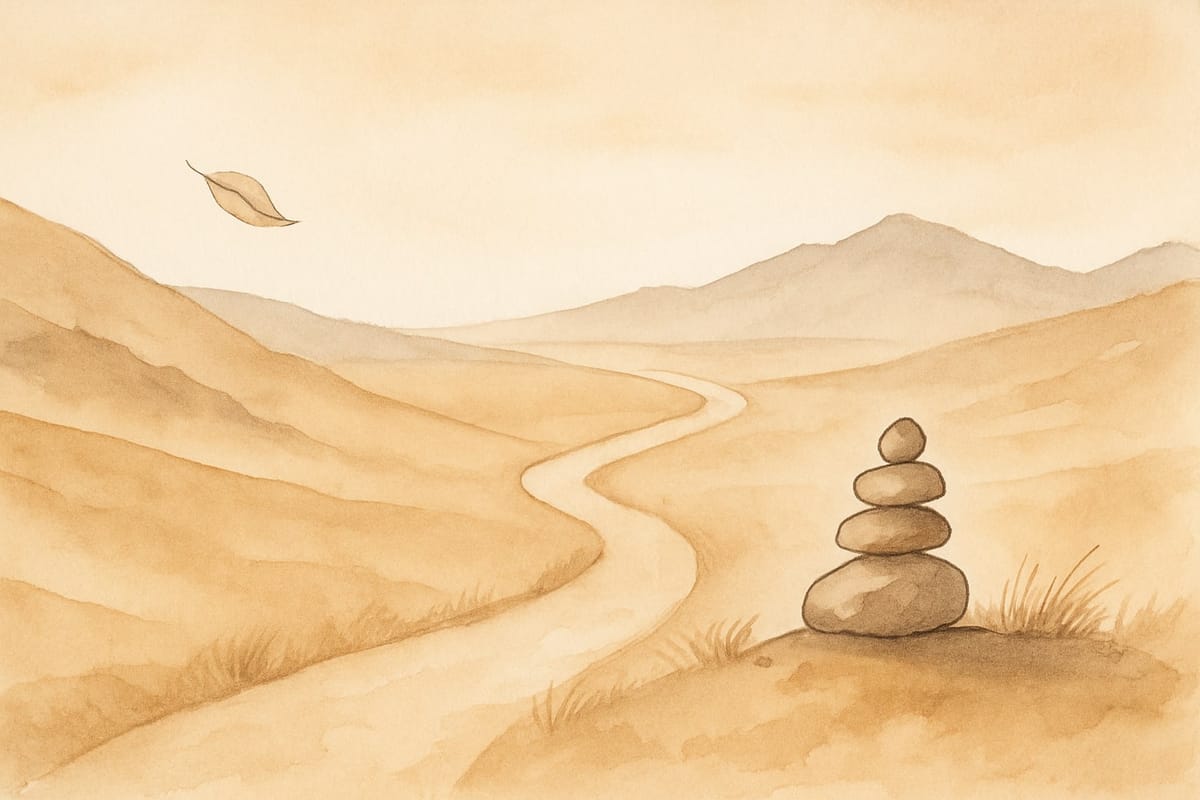
Apatheia is an important concept when it comes to Stoicism.
Another word for it would be emotional control, and it’s an important part of the puzzle I’ve likely been missing out on.
We put Virtue as the highest good and it’s expressed through my actions, and virtue is what’s reasonable.
Looking at that chain it goes:
Reason → Action → Virtue
Where it often breaks down for me is at Reason, it becomes disturbed by my emotions.
By focusing more on apatheia or emotional control through routinely using premeditatio malorum and the dichotomy of control (understanding what is up to us and what’s not), it's likely to allow me to stay more reasonable and exercise virtuous actions.
It’s a fascinating thought, sometimes I wonder:
What kind of life should I lead to feel proud of myself and free of regrets on my death bed?
It’s unlikely to be a tranquil life and much more likely to be a virtuous one (where I had a positive impact on people and the world).
Even just contemplating these choices and realizing their importance gives a certain level of pride and satisfaction.
A Virtuous Struggle
I realized something shocking yesterday that explains my relentless indecisiveness between tranquility and virtue.
It seems that whenever I think about doing virtuous things, I get a kick out of it.
I’m using the thought of doing the right thing to make myself feel good.
The only problem seem to be—doing it doesn’t always make me feel good.
And that’s fine and to be expected, what gets me is how feeling well still holds such enduring value.
This is where my confusion once again takes place, because it does make sense to aim for a tranquil life through virtue and expanding one’s comfort zone.
I think of my parents who are elderly (soon 70 and 75), they live a slow easy life, and knowing this makes me strangely happy. Things could be better for them but even more importantly—it could be a lot worse.
I also think back of my own life.
I’ve gotten to travel a lot, see and do so many things that I’ve wanted, and this makes me deeply satisfied and happy.
It seems that despite my best efforts I’m unable to be virtuous for virtue’s sake.
I seem to require another good that makes sense in itself—like tranquility.
So what of my previous criticism of it?
As for the self-centeredness (that it is a potential issue), it seems to me though that people with well-being (or tranquility?) are naturally more caring and loving towards others (or virtuous?)
With last week’s running example, I made a bad decision and suffered my tranquility for it.
But that should also say something about its value.
Is Virtue Enough?
I’ve been contemplating yesterday’s writing and the struggles I have with being virtuous for virtue’s sake.
It’s a struggle and tranquility surely feels a lot better, but I’m also starting to question:
Is there a better route than virtue?
Yes I’d much prefer my tranquility but it seems painfully obvious by now that it’s not a button easily pressed.
The stoics talk about Apatheia (freedom from negative emotions) and Eudaimonia (a happy, flourishing and fulfilling life) that are all in all, a happy side effect of living on virtuous life.
I realize that virtue for its own sake is a circular argument, and to live in accordance with our nature is an appeal to nature fallacy.
But virtue can never be abused, is always something to be proud of and is always good for everyone.
Maybe this is enough?
Maybe getting apatheia, eudaimonia and all sorts of pleasant effects and experiences are simply to be enjoyed when they come and endured when they don’t?
Like Epictetus would say: “Bear and forebear”
I also enjoy the life motto of:
“The secret in life is to be grateful for your highs and graceful with your lows.”
Perhaps that’s just it.
Hope
Today certainly is one of those days where having a philosophy that focuses on improving the emotional aspect is attractive.
But the meta-awareness that’s being developed is understanding this will pass—and virtue is still my best bet towards that deeper sense of fulfillment rather than fleeting happiness.
I just read an article that pointed towards hope rather than happiness as a meaningful life.
Hope definitely appears to be connective tissue in Stoicism.
While we can never guarantee that virtue will lead to eudaimonia—it seems to be our best bet.
And that’s hope.
Clearly being virtuous will give you a smoother life in the sense of knowing what to do—but it can never guarantee any emotion.
Perhaps over time we develop a pavlovian response to doing virtuous things where fulfillment becomes an anchored response.
At any rate, the certainty is in knowing that what you’re doing is as well intended as it can be.
Amygdala Clicking
Apatheia…
The stoics were wise to find tools and techniques that’d allow us to calm our emotions and perhaps even experience joy.
This is a surprising turn of events for me but I was reminded of an old biofeedback technique that I’ve been using on and off for the past 10 years.
It’s called Amygdala Clicking (sometimes referred to as Amygdala Tickling) and while there’s no real hard research on it, I’ve found that it works almost magically well.
It will often remove negative emotions and replace them with positive ones, helps me tolerate extreme temperatures for long periods, can give a deep sense of presence and boost creativity.
There’s a lot more to it but the way it’s said to work is by calming the amygdala, shutting down the fight or flight response and increasing frontal lobes activity.
While I’ve always loved the method for its incredibly reliable results—I always felt like something was missing.
I now believe that something is an ethics, and that’s what I’ve found in Stoicism.
The only problem with Stoicism is the difficulty to do it when emotions take over reason.
Perhaps Amygdala Clicking is the modern path to Apatheia?


